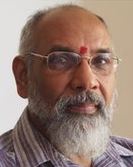A Brief Colonial History Of Ceylon(SriLanka)
Sri Lanka: One Island Two Nations
A Brief Colonial History Of Ceylon(SriLanka)
Sri Lanka: One Island Two Nations
(Full Story)
Search This Blog
Back to 500BC.
==========================
Thiranjala Weerasinghe sj.- One Island Two Nations
?????????????????????????????????????????????????Monday, March 31, 2014
Brother Bernard And The National Question

It is indeed ironic that we are remembering a stalwart among our
Majority Community Parliamentarians of yesteryears at this citadel of
Tamil Letters and Literature on his hundredth birthday. In fact we live
at a time when a mere 57th Lane cannot be renamed as Tamil Sangam Lane
in Colombo because the word 'Tamil' appears to be anathema to some of
our governing elites. I am wondering whether calling this Lane as Thamil
Sangam Mawatha might be acceptable to those who oppose the renaming.
There could be a fusion of Thamil Sangam with Sinhala Mawatha!
The very ground on which this Tamil Sangam Hall is constructed was the
venue of our pre-teenage cricketing combats in the late 1940s. Each of
us then would consider ourselves the local incarnations of the three Ws
who played for West Indies then - Frank Worrel, Clyde Walcott and
Everton Weekes apart from the bowling duo Ramaddin & Valentine!
Almost all who lived here at 57th lane at that time-both Muslims and
Tamils understood the Tamil Language. I believe even today majority of
the residents down this very short lane are Tamil speaking. I wonder
why there is so much opposition to this road being renamed carrying the
Tamil Sangam name.
Such parochial considerations were anathema to Brother Bernard. Call him I prefer to Brother Bernard Bernard since Comrade Rather than comradeship with those of the Lanka Sama Samaja Party
got excised with the passing of the 1972 Constitution which took away
the nature of the citizenry of this country PLURAL replacing IT with a
mono lingual, mono religious and mono cultural ambience in Sri Lanka.
Speaking of Brother Bernard one is reminded of the spirit of pre-1972
Sama Samajism, which he so thoroughly effused in his life and conduct.
To me pre-1972 Sama Samajism taught us two important lessons. The lesson
of empathizing and the lesson of united effort. It is a fact of our
recent history among the leftists of this country that learned men and
women who could have shone so eminently in their respective fields and
lived their lives in the comfortable company of the elite, preferred to
identify themselves with the common man, empathising with their
feelings, needs and wants. They would sit, talk and eat together with
the common man. It was they who taught our common masses that power lies
in their united efforts. It was they who remained by the side of the
unlettered and the rudderless people goading them to action, which
ultimately registered their trade union rights in no uncertain terms.
Our working class today are beholden to the pioneering efforts of the
Sama Samajists and the Communists. Their parties have no doubt lost the
charisma they enjoyed in the past, but their spirit is pervasive among
our people specially the working class despite the opportunistic course
followed by the Party after 1970.

